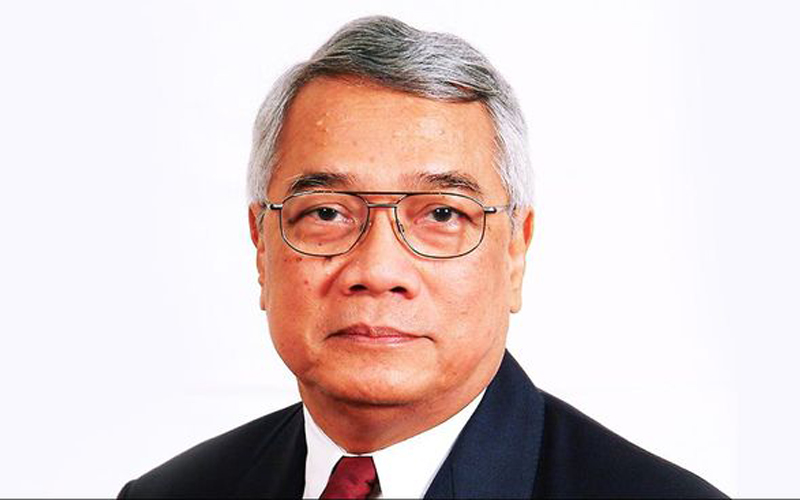Does “Reverse Development” Really Exist?
By: Prof. J. Soedradjad Djiwandono, Ph.D., Emeritus Professor of Economics, Faculty of Economics and Business, Universitas Indonesia, and Adjunct Professor of International Economics, S. Rajaratnam School of International Studies (RSIS), Nanyang Technological University (NTU), Singapore
Independent Observer – (9–15/9/2022) In a recent monthly meeting of the Senate of Professors, at the Faculty of Economics and Business, University of Indonesia, we discussed the rate of inflation, acknowledging surprise at what is taking place in the US and in emerging market economies, including that of Indonesia. Professor Adrianus Mooy embarked on the topic by pointing out that the experience of developed vs. Emerging economies seems to have flipped: developed economies are suffering 8 to 9 per cent inflation, while the figure for emerging economies hovers around 4 to 5 per cent. I immediately concurred, while adding that unemployment in the USA is only reported at 3.5 percent, while unemployment rates in emerging economies may vary but are certainly much higher than that. In addition, emerging economies also suffer from a problem of under- (or disguised) unemployment, even if it is difficult to precisely ascertain.
But is this truly an apple-to-apple comparison? I would agree, regarding inflation and unemployment. However, one could add other social indicators, as for example the degree of social and political cohesiveness. The US is suffering from a political divide that is easily observable since the advent of the Trump Presidency. Many would even argue that it started earlier than that.
From his campaign period onward, President Biden strongly ushered in a drive for national unity, campaigning for President of the United States of America, in contrast to his predecessor, who championed “America First” and “Make America Great Again” (MAGA). Neither represented a retreat from globalization, while domestically hardening a social and political divide, or at least weakening cohesiveness. It may widen income inequality as well; we cannot predict this.
Taking this position, President Biden is already paying the price, regarding his position to support legal abortion, which resulted in his being sanctioned by the American Catholic Bishops, who refused to give him Holy Communion, as was also the case with Speaker Nancy Pelosi. I am afraid the American Catholic hierarchy forget that President Biden is not just President for the American Catholics, but all American as he promised from the start. They have different opinions in many things. Afterall faith in Catholicism is a personal relation of an individual with God and no one could judge anyone else as to how firm is the faith of other’s. It is good that some Bishops, including the one of Washington DC have been dissenting on the decision.
Still, to me it is strange that President Biden who has been working very hard to unite America with programs that directed at achieving that objective is receiving low percent of approval rating. Even though since he started campaigning for the midterm election few days ago his percentage is increasing a bit, but at 42 per cent his approval rating is still way lower than his democrat predecessors, of both President Clinton, and Obama. But I see that President Biden seems getting back his confidence and ready to fight, even in criticizing MAGA as semi-fascism. On the Republican side Senator Lindsey Graham of North Carolina already made a warning that if former President Trump is prosecuted from the findings of those documents in Mal a Lago, there will be street riots everywhere. This is strange phenomenon in my take but let us just wait and see while hoping that these are all political statements in campaign period only.
My point is only that these are phenomena that in economic development theory we used to characterize the underdeveloped and developing countries only. Countries in Latin America, South and Southeast Asia and Africa of the fiftieth and sixtieth were those having the characterization. But, if this is true, does not that imply that developed country like the US is currently experiencing a regression of development?
All right. I hope I am wrong, but after our discussion in the meeting I mentioned above, my mind keeps pondering on these issues. You see, in contrast to those mentioned about America, I could say with confident regarding our own society. Sure, we have social problems all the time, and yes corruption is happening all the time as people keep talking about General Sambo case nowadays. We are facing presidential election in 2024 and we have several potential presidential candidates and different coalitions of political party. But praise the Lord we do not see the social divide even as compared to the last presidential election. I do not know if I am just dreaming or naïve on this.
Final Notes
What I alluded above to may for some to be an exaggeration of what is transpiring in the US and in emerging market countries. But I cannot help but claim that I know something about American politics and social development, having exposed to all these during my time of schooling at the University of Wisconsin, Rice University, and Boston University, working as Development Associate at Harvard Institute for International Development (HIID), Harvard University for few years, plus visiting several cities many times in my work as well as on vacation. And I keep following what is going on through reading and watching television news and reports diligently. I hope I am mistaken about this, but now this is what in my mind, thoughts which I would like to share with all of you who care to read this column
Source: Independent Observer. Edition: September, 9-15, 2022. Rubric Opinion. Page 6.

